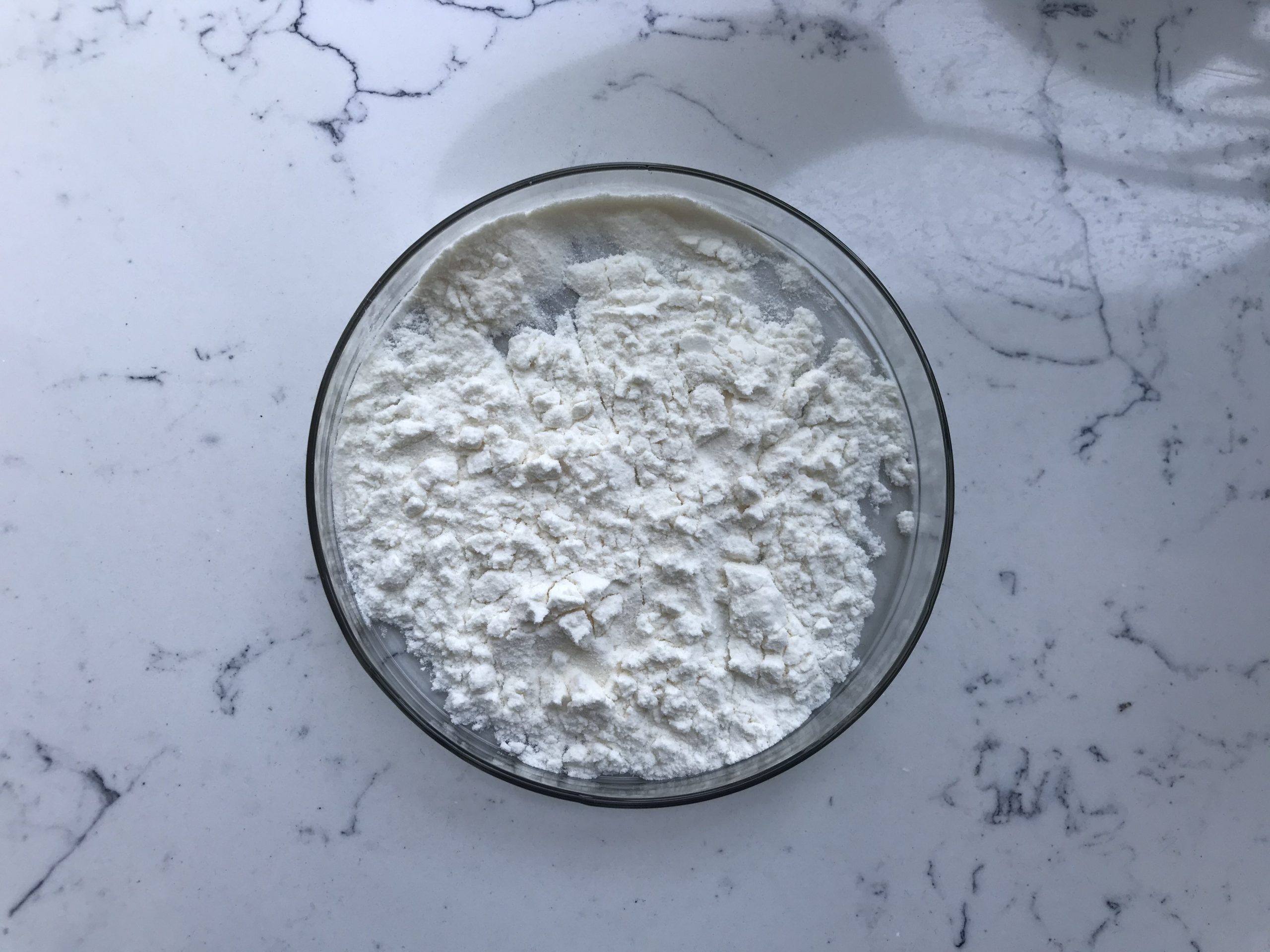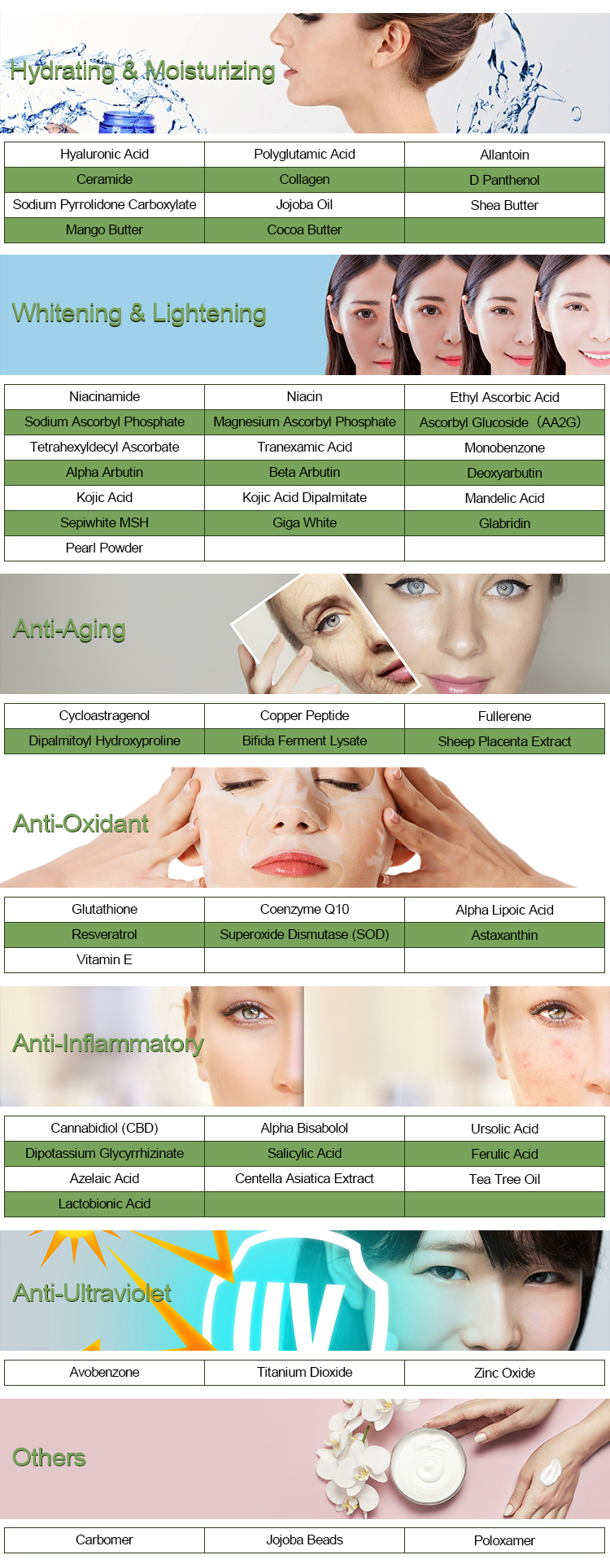Magnesium Ascorbyl Phosphate (MAP) is a water-soluble derivative of vitamin C (ascorbic acid) that is commonly used in skincare products for its potential benefits. Here’s what you need to know about its effectiveness, potential side effects, and special precautions:
Effectiveness of Magnesium Ascorbyl Phosphate:
1.Antioxidant Properties: Like pure vitamin C, Magnesium Ascorbyl Phosphate has antioxidant properties. It can help protect the skin from free radical damage caused by UV radiation and environmental pollutants. This can contribute to a brighter complexion and may slow down the signs of aging.

2.Skin Brightening: Magnesium Ascorbyl Phosphate can help lighten hyperpigmentation and age spots by inhibiting melanin production. It may improve skin tone and reduce the appearance of dark spots.
3.Collagen Production: Vitamin C derivatives like Magnesium Ascorbyl Phosphate can stimulate collagen production in the skin. Collagen is essential for skin elasticity and firmness, which can help reduce the appearance of fine lines and wrinkles.
4.Moisturizing: Magnesium Ascorbyl Phosphate has hydrating properties, making it suitable for people with dry or sensitive skin. It can help retain moisture and improve skin texture.
Side Effects of Magnesium Ascorbyl Phosphate:
Magnesium Ascorbyl Phosphate is generally considered safe for most skin types, but like any skincare ingredient, it can cause side effects in some individuals. Common side effects may include:
1.Irritation: Some people with sensitive skin may experience redness, itching, or a burning sensation when using products containing Magnesium Ascorbyl Phosphate. It’s important to patch-test new products before applying them to your entire face.
2.Breakouts: In rare cases, Magnesium Ascorbyl Phosphate may cause breakouts or exacerbate acne in individuals with acne-prone skin. This is not common but can happen.
Special Precautions of Magnesium Ascorbyl Phosphate:
1.Patch Testing: Before using a skincare product containing Magnesium Ascorbyl Phosphate, especially if you have sensitive skin, it’s advisable to perform a patch test. Apply a small amount of the product to a discreet area of your skin (e.g., behind your ear) and wait 24-48 hours to see if you develop any adverse reactions.
2.Sun Protection: While vitamin C derivatives like Magnesium Ascorbyl Phosphate offer some protection against UV damage, they are not a substitute for sunscreen. It’s crucial to use sunscreen daily to protect your skin from the harmful effects of the sun.

3.Consult a Dermatologist: If you have specific skin concerns or conditions, such as severe acne, rosacea, or allergies, it’s a good idea to consult a dermatologist before adding new skincare products to your routine. They can provide personalized recommendations and help you choose products that suit your skin type.
4.Storage: Like all vitamin C derivatives, Magnesium Ascorbyl Phosphate can degrade when exposed to light and air. Store products containing MAP in opaque, airtight containers, and keep them away from direct sunlight.
In conclusion, Magnesium Ascorbyl Phosphate (MAP) can be an effective addition to your skincare routine for its antioxidant, brightening, and anti-aging properties. However, it’s essential to be aware of potential side effects and take precautions, especially if you have sensitive skin or specific skin concerns. Always patch-test new products and consider consulting a dermatologist for personalized advice.
